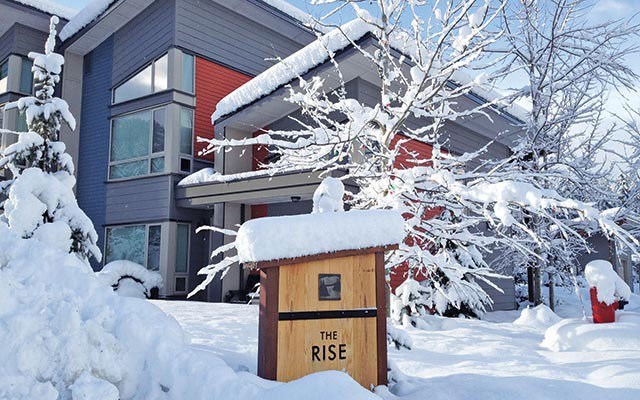With 2013 operating costs for Cheakamus Crossing's state-of-the-art District Energy System (DES) coming in under budget, Whistler officials have proposed funnelling some of the money saved into educating residents on the usage and maintenance of the complicated heating system.
The municipality is responsible for operating and maintaining the ambient heating system up until the property line at the Cheakamus Crossing neighbourhood, meaning residents are tasked with maintaining the service connections and heat pumps within their own homes, which has proven to be a headache for some who've reported frequent technical mishaps and high maintenance costs.
Now, the municipality is looking at potentially offering some relief.
"The operating costs for 2013 have been significantly lower than forecasted, therefore since the rates charged to the properties are fixed, the resulting contribution to the reserve fund has been somewhat higher than normal," explained the RMOW's general manager of infrastructure services, Joe Paul, while presenting the 2013 annual DES report to council Tuesday, Oct. 7.
The resort will contribute approximately $100,000 to the reserve fund this year as a result of the lower than expected operating costs, a full $30,000 more than originally planned — money that Councillor Duane Jackson hopes to put to good use.
"If we were able to allocate some of the reserve budget to an education program and a pilot project, I think it would be well worth doing," he said, proposing a volunteer study that will look at heating system performance in a handful of Cheakamus units.
"It's a good idea," said Mayor Nancy Wilhelm-Morden. "To the extent where there can be some education and assistance just in figuring out how these things are supposed to work and be maintained, then that should help with some of the problems homeowners and stratas are having."
The proposal is all the more timely after BC Hydro cancelled a planned DES study, citing organizational changes and cutbacks, that was meant to "to help answer some very detailed questions about how the various specific energies are being used by the District Energy System," said Paul.
The DES report also showed that, from a municipal standpoint at least, the system is operating smoothly, with no hours spent below minimum temperature during heating season and no system shutdowns in 2013.
"I think there's still some, and we're all aware of it, lack of an opportunity to educate the neighbourhood from the fact that we do meet the temperature in the operating range, and therefore it's not a municipal issue — that it's not the heat that's delivered (that's the problem), that it's somewhere within the unit," Jackson said in reference to the issues some Cheakamus residents have faced with their heating system.
The Cheakamus Facebook page is regularly filled with complaints over the system from residents, with some being forced to pay thousands of dollars in service and maintenance fees. One such resident, Karen Thompson, told Pique earlier this year that she's incurred roughly $7,000 in repair costs from four different technician companies in the last two years alone.
Addressing the council table, Paul said that while "in general, the system is functioning," that installation may have been the root of the problem in certain units.
"It's been very clear to us that the vast majority of users of the District Energy System are enjoying a relatively trouble-free system," he said. "There are some problematic installations that have been done. Anecdotally, I've heard some areas have more troubles than others that were installed in a specific development by a specific installer."




